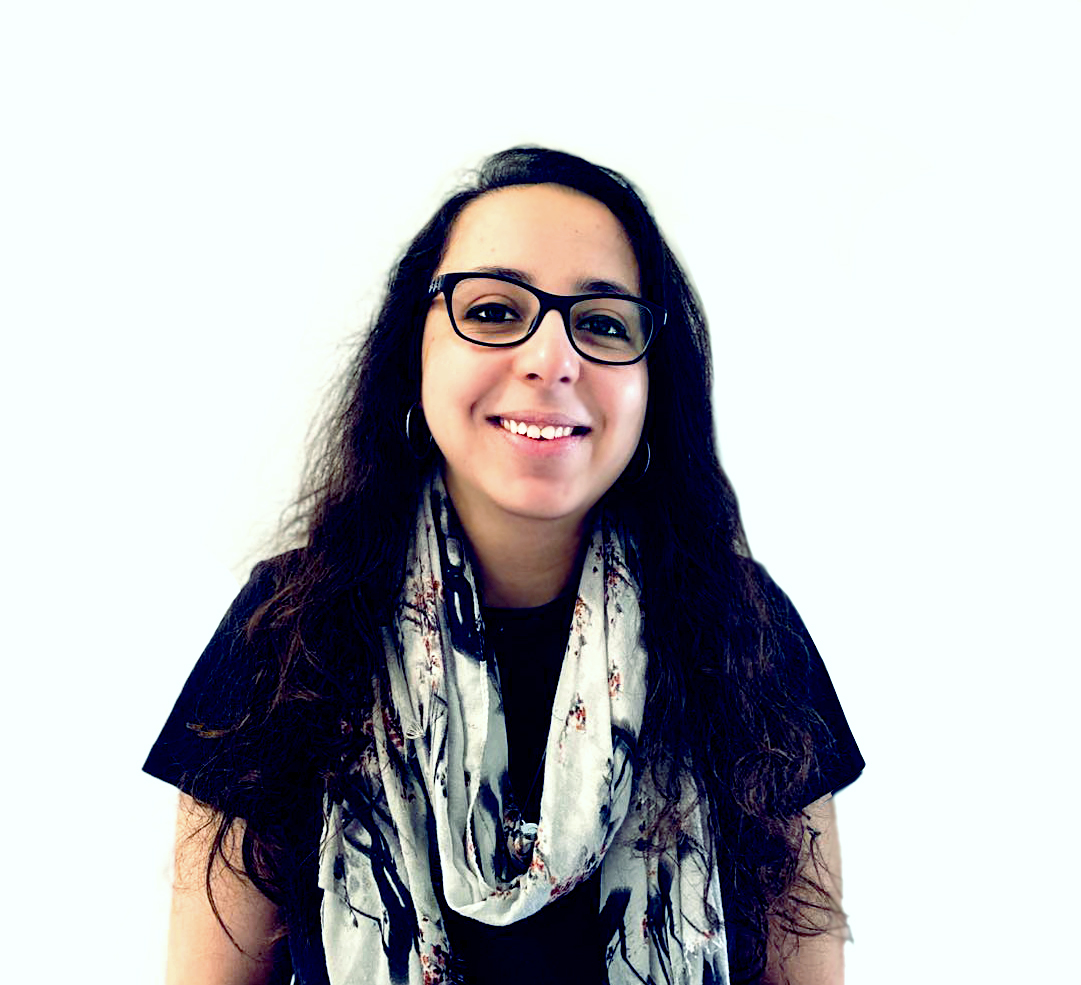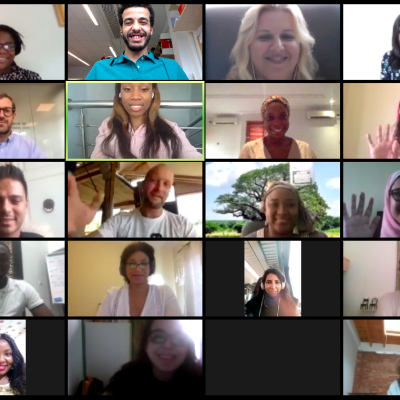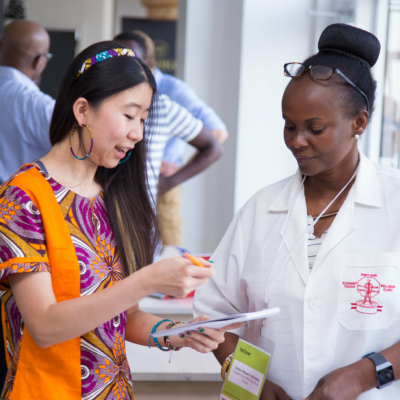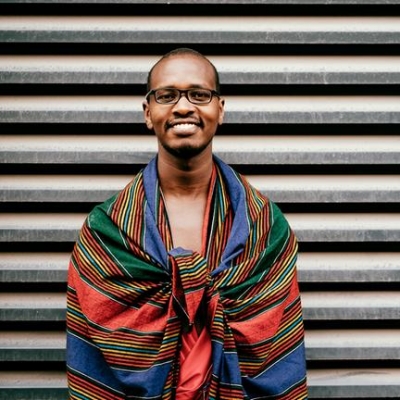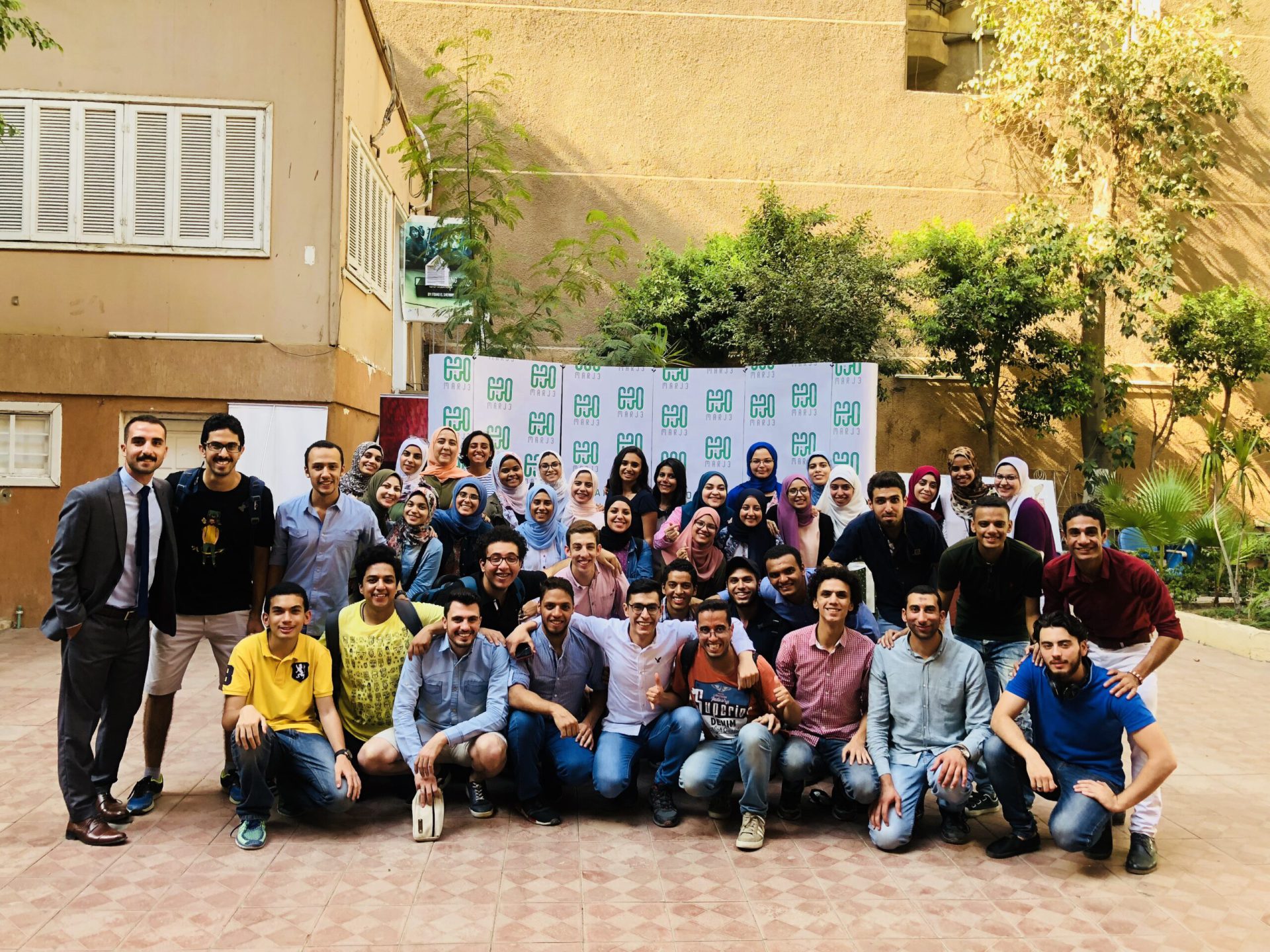
Marj3 is Transforming Education for Students all across MENA
Education has been one of the sectors most affected by the pandemic. Since the onset of COVID-19, the way we learn, and the way we educate, has experienced a massive shift – becoming more digitized, but also more remote; connected, but also more distanced.
Due to the constraints of the pandemic, we’re still not able to meet and grab a coffee like we used to, but last week, we managed to have a virtual cup of coffee with Sami Al-Ahmed, CEO & Co-Founder of Marj3, a leading Ed-tech platform in the MENA region.
How would you describe Marj3?
We are MENA’s biggest Ed-tech platform with 2,500,000 visitors monthly, connecting students from the MENA region to educational opportunities around the world. We have 3 main products:
- Marj3 Education: A database for universities and schools all over the world where students can log in
- Marj3 courses: A database of online courses and Massive Open Online Courses (MOOCs) around the world.
- Marj3 scholarships, our most prominent product: A database for grants, scholarships, opportunities in different locations around the world.
What was your main motivation to start this platform?
It all started with 3 co-founders with individual stories, travelling on their own roads, that eventually met on the same path. Abdallah Sami and Ahmed El Gebaly had once participated in a scholarship program – they had the opportunity to travel, and after they came back to Egypt, they felt it was their duty to share their experience. So, they created a simple platform called Absat-halak (Translation: Let me simplify it for you). They started doing offline activities in Egypt and toured through different governorates. They saw how the platform was helping people, and they wanted to develop it further.
On the other hand, I arrived from Syria to Egypt in 2012. I had a lot of problems with receiving education, even though I had moved from one Arab country to another – I faced a lot of challenges, lost some opportunities and I was quite frustrated. Once I managed to overcome these struggles, I made a kind of personal promise that I didn’t want anyone to go through the struggle I experienced. In 2013, I founded my first startup, Khatwa, to help Syrian refugees in continuing their education in Egypt. Three years later, I realized that the problem with education isn’t necessarily linked to the refugee status, nor is it an Egyptian problem. It was a bigger and more general problem that affected a lot of people – especially considering the overall climate of the Middle East at the time.
So I said, let’s build a platform, an entity, that can help with the field of education and can change the culture of learning in the Middle East to make it easy and accessible.
How did you get things started on the ground? Can you tell us about your first milestone with Marj3?
When we decided to start a company, we decided to have something similar to the engagement phase. Before we launched a business together, we wanted to get to know each other a little better. My co-founders had met each other in the US and worked together, I had met Abdallah through a program by DAAD and didn’t know Gebaly at the time, so we didn’t really have that connection yet.
We realized the best way to develop that connection is to travel together. We all applied to the same program in Tunisia, and we were all accepted. As it was an international program with students from Libya, Egypt, Tunisia, Morocco and other countries, we used the opportunity to also start validating our idea and get feedback on the ground. We also started to put together an initial plan for the business. How would we work together? What are the rules? Especially when there’s conflict, how do we plan to handle different perspectives in decision-making? How will vesting work? We mapped out all the scenarios that could possibly occur – which is a framework we still go back to to this day. Even now, we still say: “Based on what we agreed on, the solution will be X” and that still saves us every time.
Next up, we wanted to get our MVP out the door, and we knew we had to be firm to get things going. So, we set a deadline – one that was almost too unrealistically tight. We started to work, the deadline drew closer. At the time, I had an office space that I was using for Khatwa, so we decided that no one will leave the office until Marj3 is ready to launch.
We stayed for a week – and in that one concentrated week, we did about four months worth of work. Because there’s no more room for procrastination, we have to make this happen and we have to launch the platform. Which we did.
We then started to spread the news and reached out to partners. Our personal network was helpful for us to attract interest, we also had a few partners that were easy to communicate with and onboard to the new platform as they knew us personally. We immediately started to learn and develop our product. There were many assumptions we launched with that were almost immediately proven wrong. For example, our initial concept was to create a video that would explain the opportunity Marj3 offers in under 3 minutes. We thought people would appreciate having the opportunity explained in a simple, visual format rather than reading through bulky texts.
We found out no one was watching the videos.
So this unique proposition of ours, the one that we thought was so great and would change the world, that people actually had told us would be ideal for them, wasn’t working. Maybe 10% of the website visitors were watching the videos. So we dropped the idea and started pivoting.
In the beginning, we had all three: education, scholarships and MOOCs. We then realized that was too much to start with and that we would lose all 3 by trying to run them in parallel, and rolled back to having only the scholarships. We rolled out the other two products over different phases and longer periods of time to be able to dedicate enough time and resources to developing each product.
What was the opportunity that really helped you jumpstart your growth and scale to where you are now?
In the first year, we were still putting together the set-up. There were several checkpoints, or challenges that we overcame, that led to this growth.
The first challenge we overcame: Accelerating our content creation.
First up was Internship Marj3, which is now Marj3 fellowships. But of course we had no money. As three people, taking in our capacity, our highest ambition at the time was to input three scholarships a week, which would be around twelve a month. This means our website has 144 opportunities annually – which is a very little number, if you just apply some filters, you’ll end up with nothing. We can’t build a platform like this.
So, the challenge was: we needed a bulk of data and we had no money. So what do we have? We have experience, we have management skills, we have knowledge that we can share. We created a training program; we offered to train students and interns in exchange for their support with data entry. The first round started with 32 interns. We started off with a lot of sectors, many have dropped since then and we have kept and continued to develop translation and search. Right now, we have 150 active professionals, working completely remote, from 14 different countries. They have inputted over 10,000 opportunities over the past period.
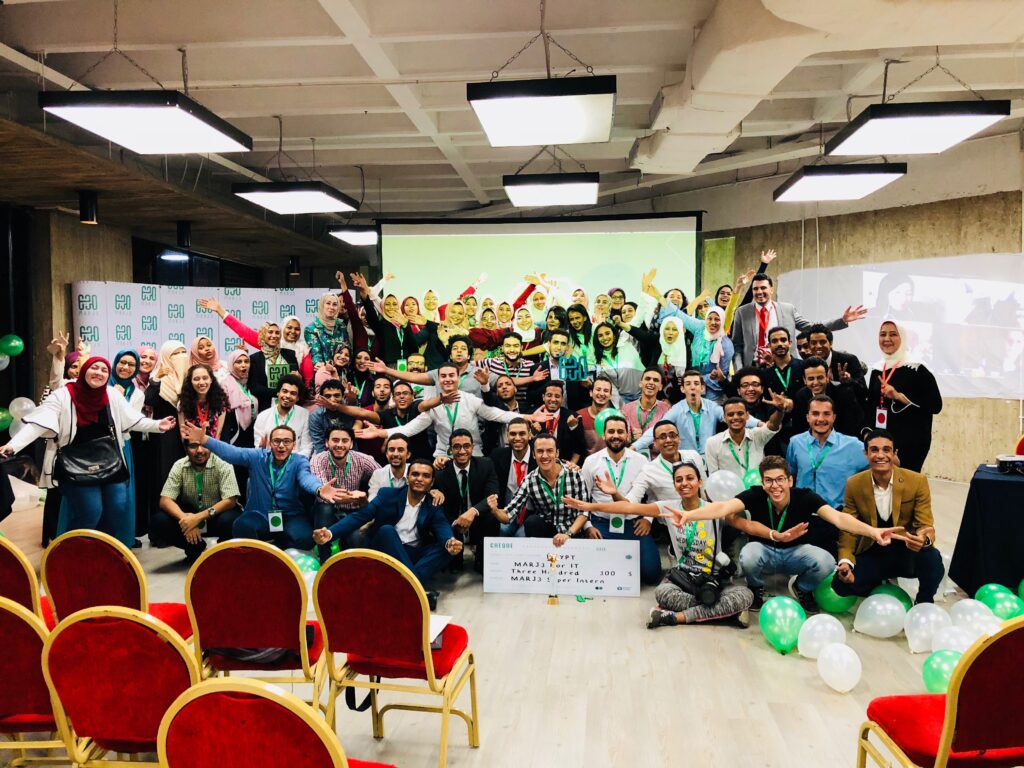
Our second challenge: Entrepreneurial mindset and growth hacking
Flat6labs Cairo accelerator gave us both funding and guidance about the entrepreneurship field, which inspired us to get into the growth hacking mode. We, as a team, had a good experience with growth hacking and building organic reach. We started to leverage our network and rely on the butterfly effect to spread the news about our work. We invested in optimizing our SEO and worked on improving our targeting. We recruited career coaches and HR companies as ambassadors for our work to reach our target communities. At one point, we were practically present in all events, summits, and conversations related to our field.
Our third challenge: Developing our business model
Finding the right business model is one of the bigger challenges in the education field because most of the traditional models are simply not scalable. After investing a lot of effort, research, and tests, we managed to overcome in the beginning of 2020 after three years of pivoting and adjusting. We started generating revenue a year in, but by 2020 we were generating higher revenue and developing a more successful model. We also received an investment from Expert Dojo, joined the Empowering Entrepreneurship Initiative, and launched a few new programs: School ambassadors for high school students development, talented writers for training writers in the beginning of the career on creating content; we provide them with the skills they need, and they develop Ed-tech content for our website. We are especially proud of this program and the quality of its output which has been excellent from the beginning. These programs enable us to start building a more comprehensive content library and invest more in having videos, audio, text, and multimedia that is fully designed and produced by us.
We also onboarded great partners: We were honored to start a partnership with Harvard University. It was a huge leap for us to be able to partner with Harvard for one of their programs and have Ivy League universities onboard the platform.
“Once I managed to overcome these struggles, I made a kind of personal promise that I didn’t want anyone to go through the struggle I experienced.”
What was the main effect of the pandemic on your business? What changes did you make in your business model to adapt to the pandemic?
To be honest, when the pandemic first hit, it was a catastrophe.
All universities started to panic. Our annual summit was supposed to be taking place in April, but of course it was cancelled. To cancel a summit 30 days before it launched, meant that the cost of operations, equipment, printings, agreements, salaries – all of that was just gone. It was a massive loss. Our guaranteed revenue which we were counting on just vanished.

We were in a very bad financial situation, we didn’t know how long we could last. We had two options: Shut it all down or generate any other kind of revenue.
So what now? Offline recruitment was no longer an option. We were still in the beginning stages of trying to move people from the mindset of offline to online, and we decided to focus on this, given how that was the only way forward for people now. We started to invest more in our online solutions again and put more of a priority on them. We had dead leads – people who initially had no interest in the online service – trying to contact us again to explore this as an option.
Our online solutions gained a lot of attention, and starting in May, we started to generate revenue again. We started to bring in more revenue – jumping to 10x during the first six months of the pandemic, which enabled us to start our Marj3 courses. We made good progress, and started to reach out to investors which was when we received the fund from Expert Dojo.
Our business model was initially built on taking money as quickly as possible regardless of the amount or the opportunity. After the investment, we had the opportunity to take our time and target more fruitful, long-term opportunities – we transitioned from an emergency business model to a more sustainable business model which is much healthier for the company.
We were also able to invest in a major update for the platform and launch the next version of Marj3. We changed the UI/UX experience completely to adapt to the needs of the pandemic. Right now, we can see the good amongst the bad, and are fortunate enough to say that we emerged stronger from the crisis – but that was impossible to predict from the start when we felt like it was all ending.
How does your outlook about the future of your business differ between now and in February 2020? What are the opportunities available in the education sector – and the upcoming trends from your perspective?
The most obvious one is online learning MOOCs have become a movement, most of the companies that are working with MOOCs model are now raising a large amount of money, and transforming the normal way of learning.
From the outreach, recruitment and matching – it’s still a novice trend with not that much investment in the space yet, but it is promising.
The education scene has transformed completely, and it will continue to change. Because, if you look at the core of how education has been operating, it hasn’t changed in hundreds of years. It has been the same – people used to go to a mosque, or any kind of religious institute or traditional school, where someone would lecture them and then they would have to listen and recite the same curriculum one way or another – and it has been essentially the same model ever since.
Even when this model transitioned online, it was still the same material being taught in the same way. So it’s about time to change. We can’t keep treating everyone as though they have the same mindset, as though they have the same learning style and career development goals; that clearly doesn’t work anymore. It didn’t make sense at all, but no one could envision how it can change.
I believe that without the pandemic, people wouldn’t have been as willing to switch to online education. At one point, we offered the opportunity to meet online with experts to get advice on your scholarship application. People used to say: I can pay more money and meet him offline; but no, that’s not what we wanted. Now, no one wants offline anymore. This created a forced transformation in mindset, infrastructure and institutions. It was like someone pressed a button that transformed the educational field entirely, and this forced transformation created a wave of new experiences and case studies. Universities around the world had varying degrees of readiness at the time to shift online, but they were all faced with the challenge to do it all at the same time. This changed the ranking of the universities, their advantages, and their development outlook of the future.
“We can’t keep treating everyone as though they have the same mindset, as though they have the same learning style and career development goals; that clearly doesn’t work anymore.”
What has been your most important learning/the most important value you’ve received in the program so far?
For me the core value of the Empowering Entrepreneurship Initiative was about mindset growth, which I feel is even more important than financial support. Money is good to have, but the mindset development is what enables us to really grow further. The assignments and workshops gave an opportunity to learn how to adapt and change the way we think; once you see something from a different perspective, it opens up a whole new world of opportunity.
That being said, the program really did help us from the financial perspective as well as at the time we really needed financial liquidity which enabled us to support new hirings that are already having a great impact on revenue.
What advice would you share with young entrepreneurs wanting to start a business amidst the current crisis?
Two key pieces of advice:
- Don’t make assumptions
- Don’t spend a lot of money, especially in the pandemic (Just put out the MVP and try it out)
While you’re still thinking about it, the world will shift and change – you can spend months of video production and planning as we did and find that it’s actually useless. Don’t go in blind, but go in as fast as you can. Try fast, fail fast – old but gold advice.
There’s of course the big question: When do you keep fighting, and when do you call it quits and stop? There are always a lot of scenarios, but you need to know when to stop – especially when it comes to the pandemic, losses are not easy.
Be agile and flexible, the pandemic is still developing and everyday there are rapid changes. If you’re not flexible enough to adapt to change, you won’t be able to enact that change. However, if you can start now and adapt to the current circumstances, you can get through anything, and there will be phenomenal rewards.
“Try fast, fail fast – old but gold advice.”
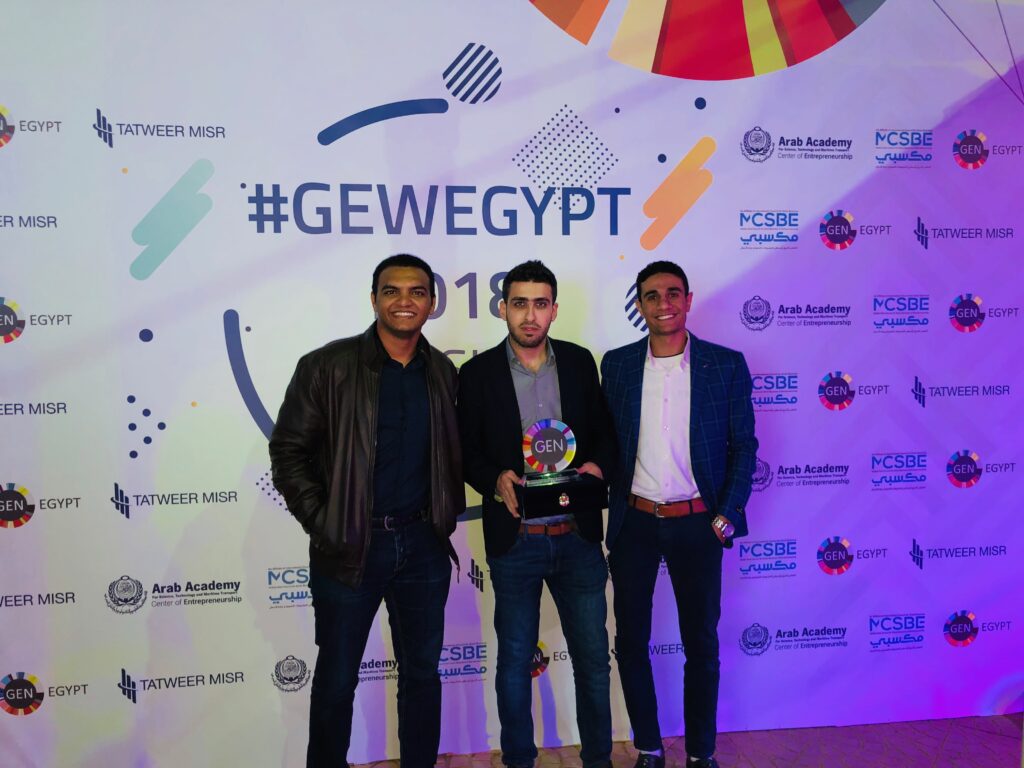
How can people learn more about your work and support you?
Marj3 is currently fundraising for their upcoming investment round. If you’d like to learn more about Marj3 and take part in the round, you can reach out to Marj3 through sami@marj3.com.
If you are an educational institute that wants to reach MENA students, you can now visit the Marj3 website.
